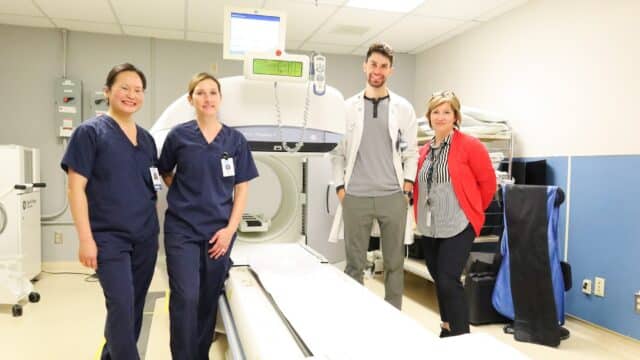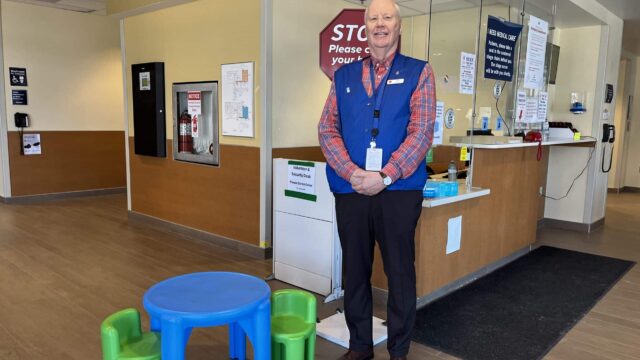One Patient’s Journey With Post-Intensive Care Syndrome
The tubes in her arms were snakes, drawing her into what seemed like a disturbing cult ritual happening around her.
For former Intensive Care Unit (ICU) patient ‘Karen’, getting a much-needed night’s sleep was marred by haunted imagery she could not understand or put into context. At times, these terrifying reflections followed her into her waking hours.
Karen mentioned her difficulty coping to her oncologist at the Dr. Douglas A. MacIntosh Cancer Clinic at Belleville General Hospital. She was referred to one of the clinic’s social workers, launching a cross-department collaboration that is a glowing illustration of our Quinte Health aspirations of compassion, connection, and care.
In April of this year, Karen met with social worker Krystle Humphrey and described her frightening dreams and flashbacks of hallucinating while she was a patient in the ICU at Quinte Health. She could remember little else about her three-week stay given how critically ill she was at the time.
Listening to Karen’s experiences, Krystle recalled hearing about residual issues some patients experience following an ICU stay. ICU social worker Meghan Shanahan-Thain had mentioned the condition known as Post-Intensive Care Syndrome (PICS) during a meeting of the Social Worker team at Quinte Health. For some patients who face critical illness requiring ICU treatment, the healing goes beyond the physical recovery to include ongoing emotional and cognitive issues.
Krystle reached out to Meghan, and they offered to take Karen for a tour of the ICU, in hopes of providing context and understanding of what she was experiencing. A couple of weeks later, the three ventured back to the ICU. Karen recalls the visit evoking a lot of emotion. “It was very hard. I had tears,” she explained.
Karen was taken to the areas where she received care and was able to meet some of her outstanding care providers. She recognized a few of them by their eyes, including one of her main nurses, and was delighted to be able to see her full, unmasked face smiling at her. She was able to ask questions about activity happening around her while she was in the ICU and see the patterned curtains and other details of her surroundings that had become distorted in her memory.
Before going back to visit the ICU, Karen had experienced nightmares a couple of times per week for nine months, starting when she was discharged home in July of 2022.
“Going back to the ICU was my turning point,” Karen said. “The hallucinations were a medication side effect, and going back I could finally see everything clearly and put the whole space into reality.” According to Karen, her nightmares have become far less frequent, happening every few weeks and she is better able to cope with them.
“I agreed to tell my story in hopes of helping others,” she explained. “If this is happening to you, please tell someone and ask for help.”
Common symptoms of PICS include forgetfulness, memory loss, poor concentration, trouble organizing and problem-solving, reduced attention, anxiety, depression, panic, decreased motivation, nightmares, flashbacks, insomnia, and social withdrawal.
If any of these symptoms are troubling you, seek help from your primary care provider or contact a local mental health agency such as the Canadian Mental Health Association Hastings Prince Edward (613-301-OPEN), the Crisis Intervention Centre (613-969-7400 x 2753) or The Enrichment Centre for Mental Health (613-969-8874).
If you are a former patient of the ICU at Quinte Health and have PICS symptoms, you can reach out to our Patient Experience team by email at feedback@qhc.on.ca. They can connect you with an ICU representative and arrange a tour to help reframe your experience.
#Compassion
#ValueEveryone




